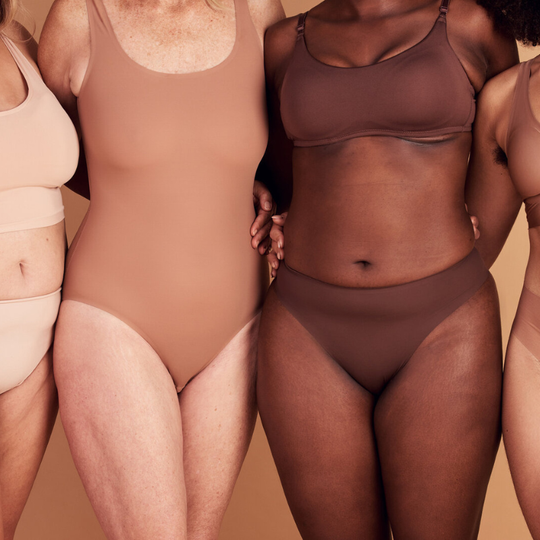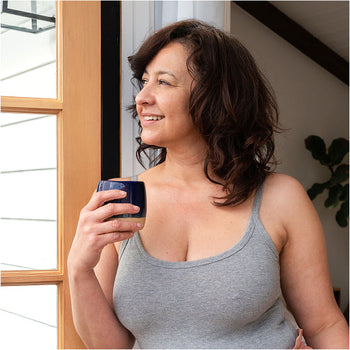October 18 marks World Menopause Day, a time to recognize the full spectrum of women’s health. But at Kindra, we believe this conversation shouldn’t just start at menopause. It starts much earlier, often in our 30s and 40s, when subtle changes begin that we rarely talk about.
If you’ve noticed shifts in mood, libido, or comfort in recent years, you’re not alone. These are often signs of perimenopause, the transitional phase that can last up to a decade before menopause. It’s a time of powerful hormonal change — and for many, the first glimpse of what aging can feel like in the body. Yet, most women aren’t told what to expect, or how to care for themselves through it.
As the leaders of Kindra, we’ve made it our mission to change that. Because aging isn’t something that happens to us, it’s something we live, grow, and evolve through. And understanding our sexual health at every stage is part of taking our power back.
Why We Stop Talking About Women’s Sexual Health
As women, we’re often taught to think about our reproductive health — not our sexual well-being. Once fertility is no longer the focus, the conversation tends to fade. But desire, pleasure, and comfort are lifelong experiences. They don’t end with age; they simply evolve.
Studies show that nearly half of women over 50 experience changes in sexual function, yet less than half ever speak to a healthcare provider about it. Imagine if we started those conversations sooner — during the first hormonal shifts, when awareness could lead to prevention, comfort, and confidence.
Sexual health is a key part of overall wellness. It affects how we feel in our skin, how we connect with partners, and how we carry ourselves in the world. When discomfort or dryness shows up, it’s not just physical — it can impact mood, energy, and self-esteem. Addressing those needs is not indulgent; it’s essential.
For too long, women have been taught to whisper about their bodies — to treat words like “vagina” or “libido” as off-limits. That silence is one of the biggest barriers to better care.
Every time a woman speaks up — about discomfort, pleasure, or desire — she’s normalizing something that should never have been taboo. And that’s how change happens: one honest conversation at a time.
From Us to You
As co-CEOs of Kindra, we have the privilege of hearing women’s stories every day — stories of rediscovery, resilience, and relief. They remind us that aging is not a decline; it’s an evolution.
We built Kindra because we believe women deserve better — better care, better products, and better conversations about what it means to feel good in our bodies as we age.
So whether you’re in your 30s noticing the first changes, in your 50s redefining comfort, or in your 70s feeling more yourself than ever, know this: you are not alone in this journey.
Here’s to aging boldly, feeling deeply, and caring for yourself fully — at every stage.













